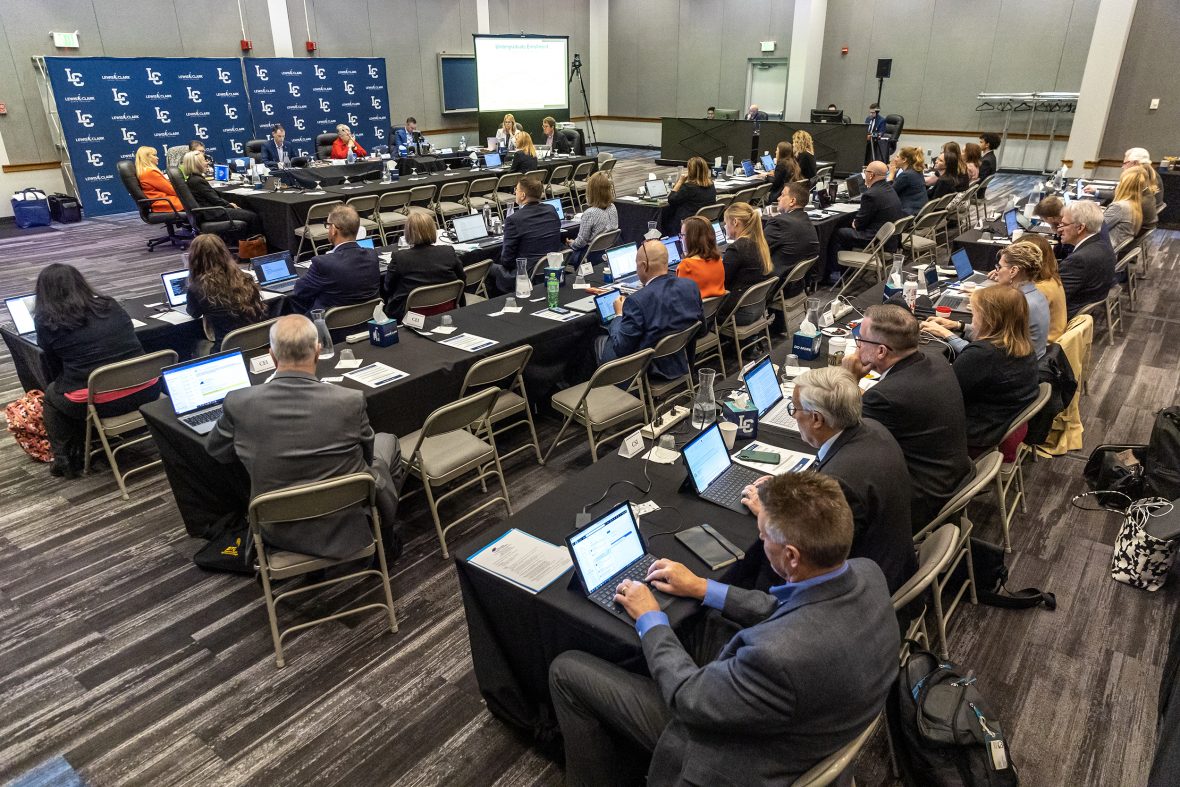
Idaho parents could have more options for spending their share of taxpayer-funded education microgrants.
The State Board of Education signed off Wednesday on a series of changes to the Empowering Parents program.
Last year, the state offered $50 million in federally funded grants, in hopes of helping families cover out-of-pocket education costs. Much of the money went into covering the cost of technology or internet access — largely because parents couldn’t find another way to spend the money, state superintendent Debbie Critchfield told her board colleagues.
“We’ve got to build something, and that’s what this is about,” said Critchfield, urging the board to approve the slate of recommendations that could remake the popular but troubled Empowering Parents program.
The recommendations would open new options for families, in two ways:
- First, the state would explicitly expand its list of eligible Empowering Parents purchases. The expanded list would include educational camps and classes, P.E. equipment and pay-to-play fees, musical instruments and tutoring and supplies such as backpacks and computer cases, among other items.
- Second, parents would be able to purchase items on their own, and apply for reimbursement later. Currently, parents must use their grants through Empowering Parents’ online marketplace, buying through a pool of vendors. The marketplace streamlines the program. But it limits parents’ buying options, especially in rural communities.
However, reimbursement is a complicated process. In order to pull it off, the State Board would probably need to convince the Legislature to add staffers to review the purchases and handle the reimbursements.
The State Board has some experience in this arena. In 2020, during the height of the COVID-19 pandemic, the state used $50 million of federal pandemic aid for a separate, one-shot microgrant program, Strong Families, Strong Students. This predecessor to Empowering Parents reimbursed parents for their out-of-pocket purchases.
The state controller’s office added five temporary, full-time staffers to review the purchases, but State Board staffers had to decide whether to approve or reject a reimbursement. “It was not (an) insignificant workload for our office,” State Board executive director Matt Freeman said.
Critchfield conceded it would take more staffers to make a reimbursement system work. “We’re not trying to create a worse mess here.”
Empowering Parents got off to a rocky start in 2022 and 2023. After flagging a number of improper, taxpayer-funded grant purchases, the State Board launched an internal review of the program. The state’s Empowering Parents contractor, Primary Class, agreed to reimburse the state $180,000 for the improper purchases. Gov. Brad Little has also ordered a third-party audit, which is ongoing.
Nonetheless, Empowering Parents could be here to stay. The 2023 Legislature renewed the program, putting $30 million of state money into a new round of grants and signaling support for a permanent program. The next grants could be available later this fall.
A seven-member parental advisory group spent the summer reviewing the startup of the Empowering Parents program, agreeing on the recommendations the State Board endorsed Wednesday.
“These were some really difficult conversations to have, and it was really robust conversation,” said Jenn Thompson, the State Board’s chief planning and policy officer.
Other State Board business
Diversity statements. With limited discussion, the State Board unanimously approved a policy that bans “diversity statements” in higher education hiring.
The four-year schools will no longer be able to require applicants to sign diversity statements.
The policy comes as little surprise. The State Board in April passed a resolution banning diversity statements. The policy basically implements that resolution.
Lewis-Clark enrollment. It isn’t a big increase, but Lewis-Clark State College President Cynthia Pemberton touted it nonetheless.

The Lewiston-based college this week reported a fall headcount of 3,789 — up six students from a year ago.
The numbers are something of a mixed bag.
Enrollment is up in health-related majors and in the college of education.
But enrollment is down by 11% in career-technical programs. This might be a reflection of the economy, Pemberton said, as more adults are going into the workforce instead of enrolling in job-training programs.
Pemberton said Lewis-Clark faces significant competition for students. The state’s two-year schools are working to offer limited bachelor’s degrees. Eastern Idaho’s Brigham Young University-Idaho is looking at offering three-year degrees. The University of Idaho’s proposed purchase of the University of Phoenix poses another challenge.
But Pemberton pointed out that Lewis-Clark has committed $500,000 to marketing and admissions and recruiting, and she said the money is helping to keep enrollment stable.
“We’re going on the offense.”
Lewis-Clark is hosting this week’s State Board meeting, which concludes Thursday.
